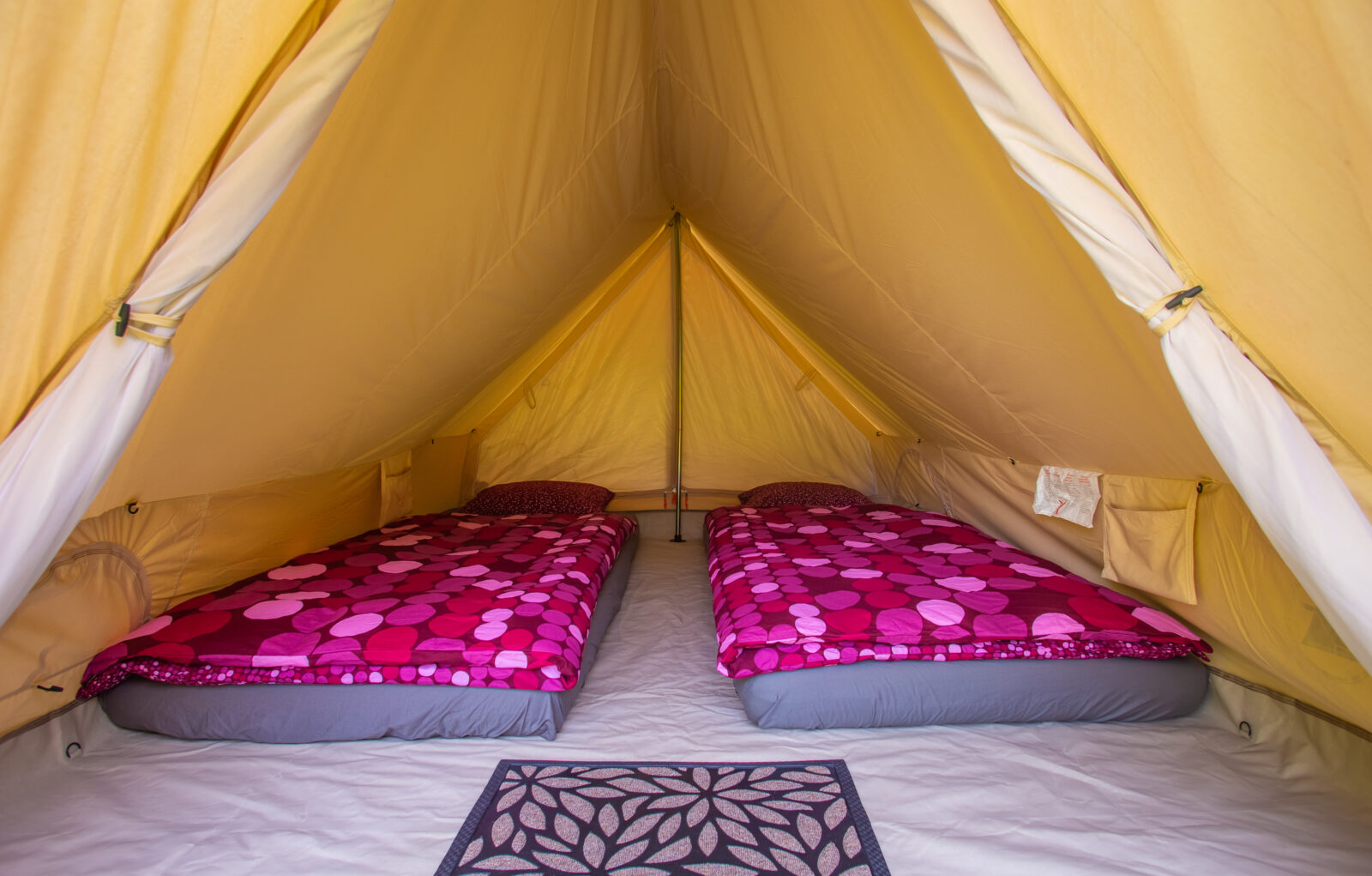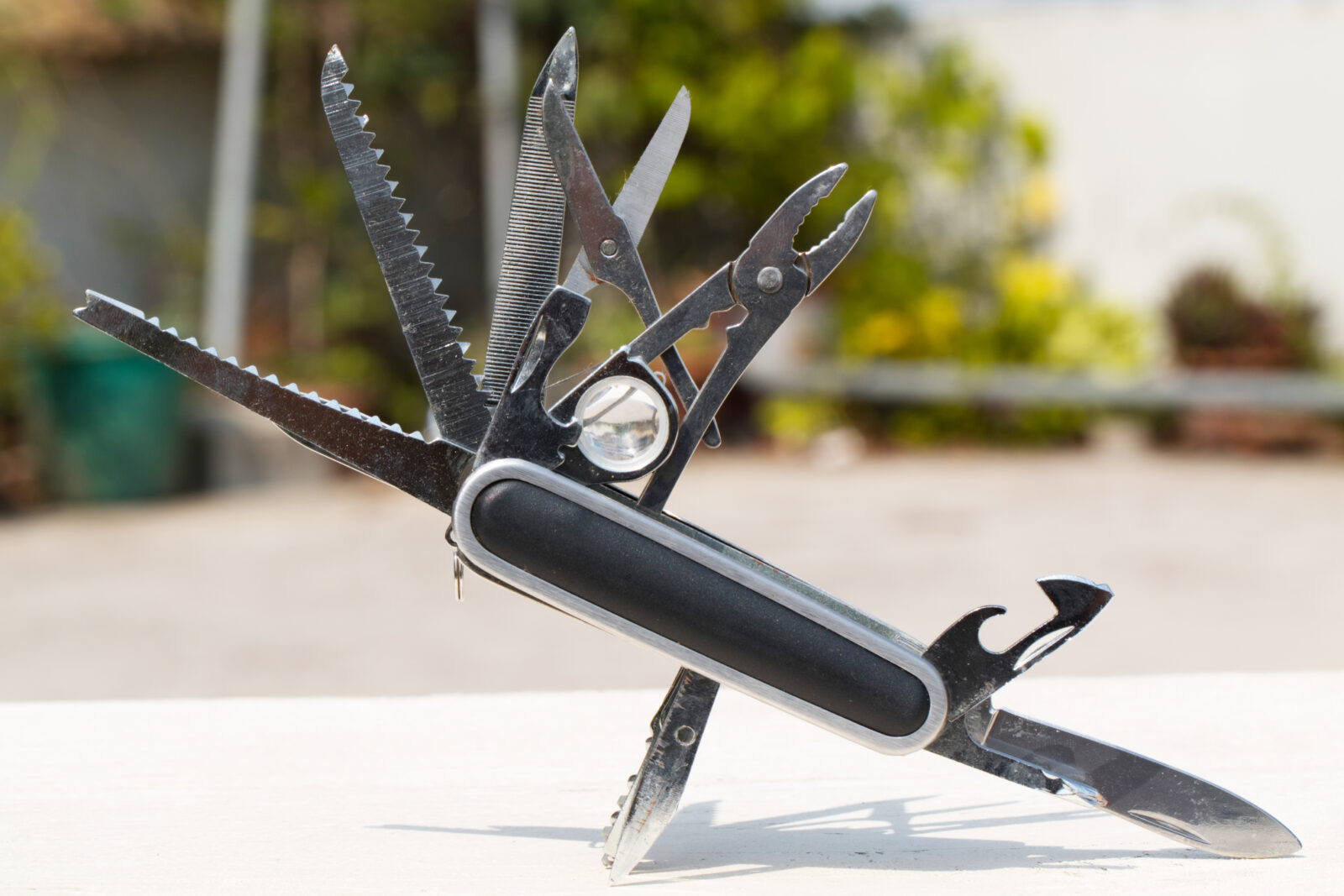Planning your first camping trip?
We know how daunting that can feel.
From figuring out your travel plans to sorting out your gear needs, learning how to camp isn’t always easy. Luckily for you, we’ve all had to start somewhere, and we’re here to help you have the best possible experience on your first-ever camping trip.
Here are 12 common mistakes made by beginner campers and how you can avoid them.
1. Forgetting to plan ahead
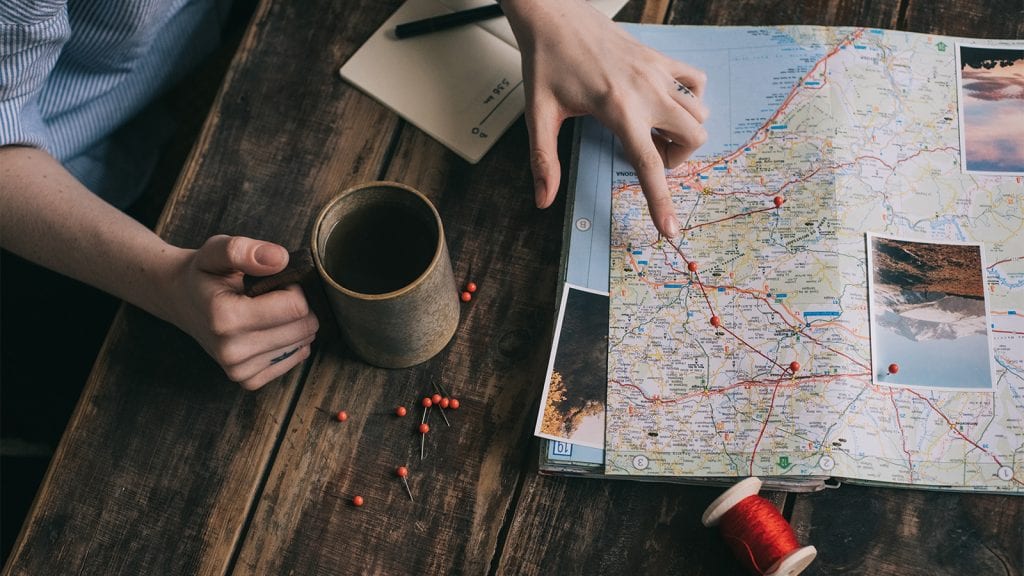
If there’s one piece of advice that we hope all campers can take to heart, it’s this – Always plan ahead.
While organizing a last-minute camping trip is possible, doing so really isn’t a good idea especially if you’re new to sleeping under the stars.
In reality, the most enjoyable camping trips are well planned and well researched so that you know what to expect while you’re outside.
Getting a good idea of your prospective camping location and any potential challenges you might face before you leave home is essential if you want your trip to go off without a hitch.
2. Selecting the wrong tent
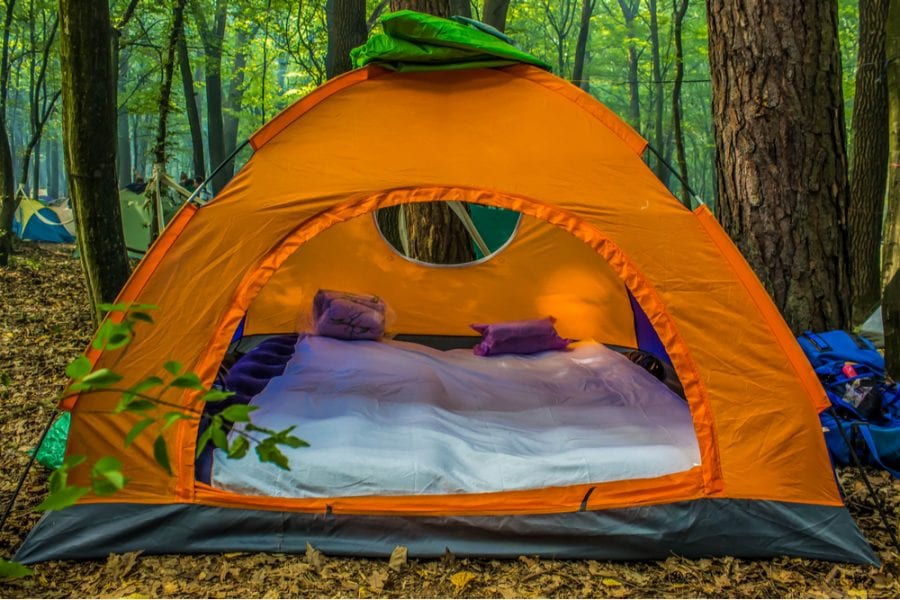
A tent is an essential piece of gear for any camping adventure. With so many different tents to choose from, however, it’s easy to get overwhelmed by your options and choose the wrong tent style for your needs.
As a result, it’s important to invest some time in properly researching the type of tent that you need. For example, while a 2 person tent might be ideal for an overnight backpacking trip to Rocky Mountain National Park, a rooftop tent might be better for a car-based adventure in Joshua Tree.
Therefore, instead of buying a tent because of how it looks or because of its attractive price point, think about the environment in which you’ll use your tent.
Using your prospective camping environment as a starting point for your tent search is important if you want to find the right shelter for your needs.
3. Neglecting to write a packing list
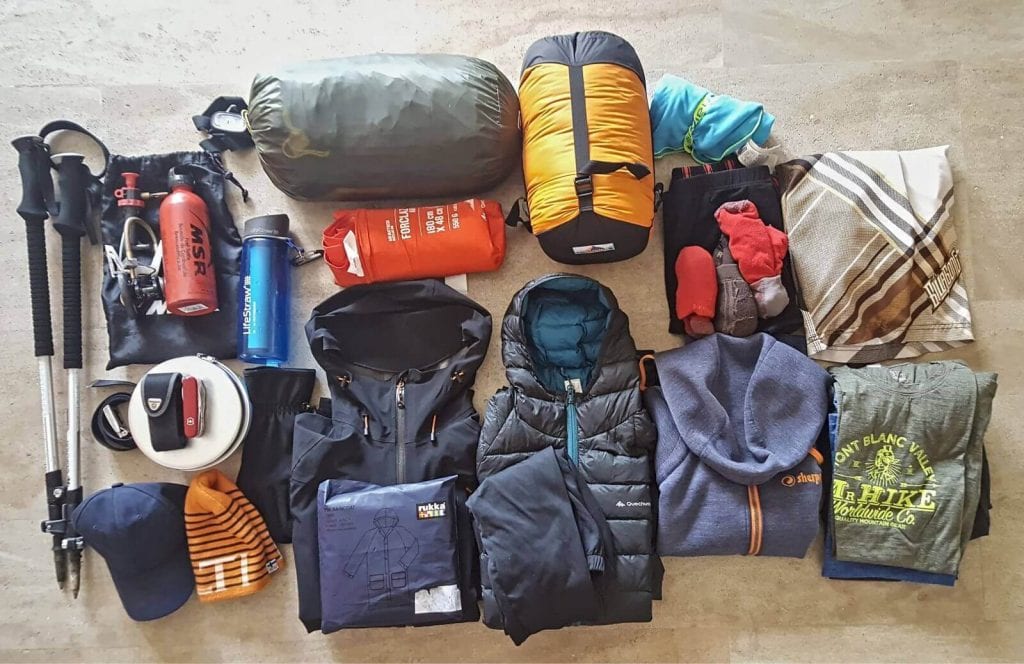
Camping is a gear-intensive pursuit. This means that trying to remember all the gear that you need for your trip is going to invariably be a hassle.
Thankfully there’s a solution for your gear-related woes. A packing list.
Indeed, while you could potentially get away with not writing a packing list, we can assure you that doing so will make your life substantially easier as you pack. As a new camper, it’s easy to forget an essential piece of gear, like your summer sleeping bag.
So, writing a gear list to guide your packing process can pay dividends in the long term.
4. Overpacking for your trip
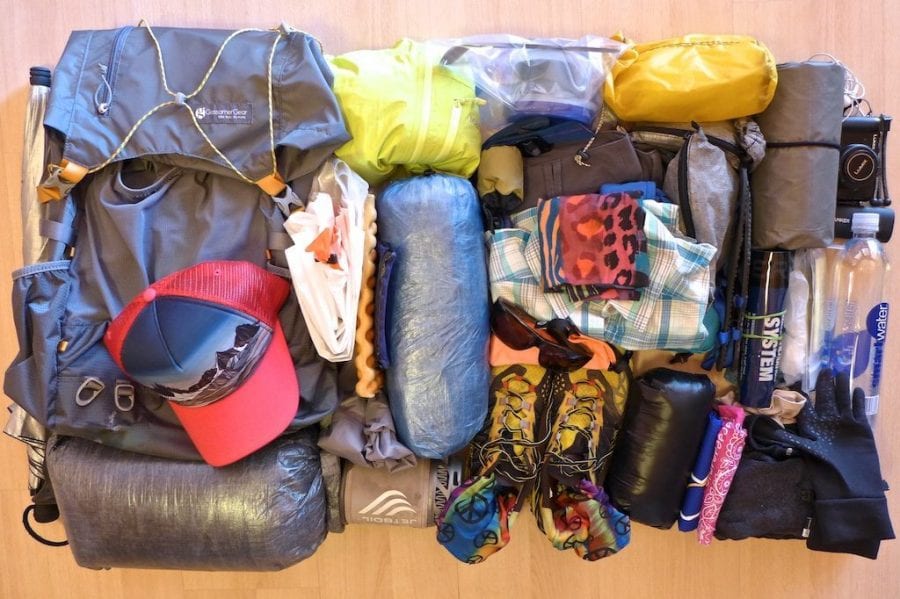
More often than not, we find that new campers overpack for their adventures. Of course, this isn’t necessarily a bad thing and most of us would rather overpack than underpack for a trip.
However, routinely overestimating the amount of gear that you need will make it challenging for you to pack effectively if you want to go on more remote adventures.
Therefore, we recommend trying to reduce the amount of gear that you pack on each trip. After each outing, take a mental note of all the gear you brought but didn’t use.
For example, if you brought ten pairs of hiking socks but only needed three pairs, make a note of that. Then, on your next trip, try to eliminate that excess gear from your packing list.
Read More : How to Pack Light for Your Next Camping Trip
5. Underestimating the weather
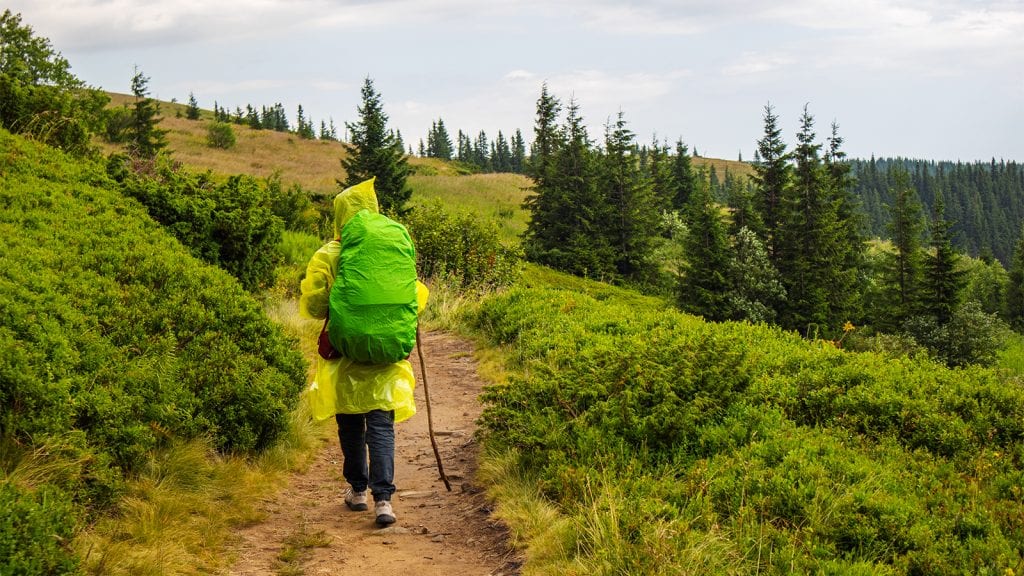
Although we all hope for bluebird skies on our camping trips, the reality is that bad weather can strike at any time. Furthermore, weather forecasts are notoriously unreliable in many popular camping destinations, such as Acadia and Olympic National Park, so it’s easy to underestimate the weather.
As a result, we highly recommend packing a rain jacket and rain pants on all trips – even if you’re camping in the desert of the Grand Canyon.
You’ll also want to bring at least one more warm jacket than you think you’ll actually need, just in case the conditions are colder than you expected.
Read More : How to Layer Effectively for Camping in Cold Weather
6. Not bringing a map and compass
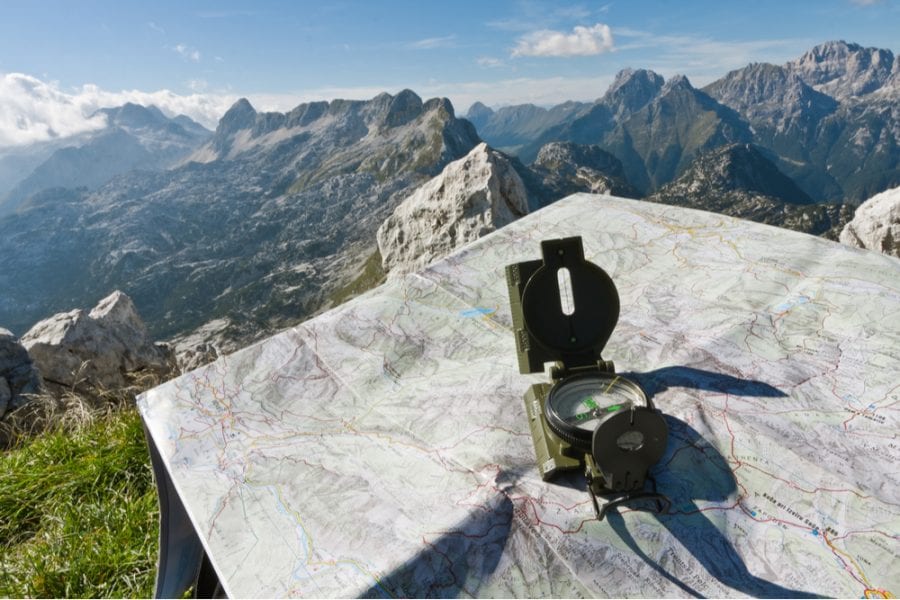
In a world of innovative new smartphone apps and GPS hiking watches, many folks think that the good old-fashioned map and compass is a thing of the past. However, we’re here to tell you that you should still bring a map and a compass on all your adventures.
Even if you have mapping software on your phone or a quality handheld GPS unit, there’s no substitute for a map and compass in the great outdoors. Of course, these technologies are useful but they should supplement your map and compass, not replace them.
At the end of the day, smartphones can run out of battery, and GPS units can fail in the cold or the rain.
So having a map and a compass is a must for all campers, whether you’re on the Appalachian Trail or hiking in the backcountry of Death Valley.
7. Arriving late to a campsite
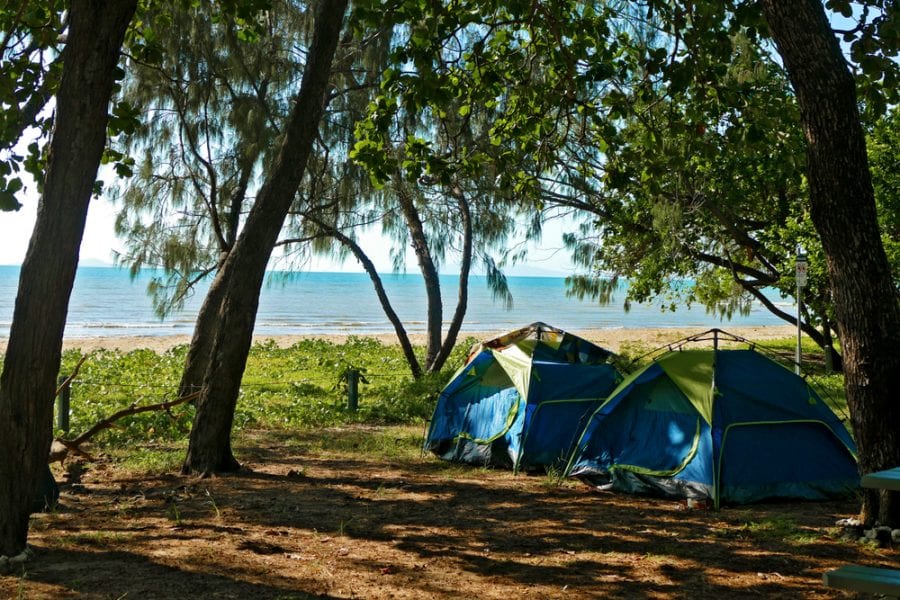
Arriving late at a campsite might not seem like a big deal. But when you leave home after work on a Friday evening and you don’t arrive at your campsite until later in the evening, you’ll quickly regret your decision to pitch a tent and cook dinner in the dark.
While there’s no problem with arriving at a campsite around sundown (we all do it from time to time), this is not an ideal situation to find yourself in as a new camper.
If you’re new to camping, the best thing to do is to set yourself up for success by arriving early at your campsite.
Doing so helps ensure that you have plenty of time to set up your 2 room tent and your camping table before night falls over your campsite.
Read More : 11 Campsite Etiquettes Every Camper Should Know
8. Relying too much on a campfire
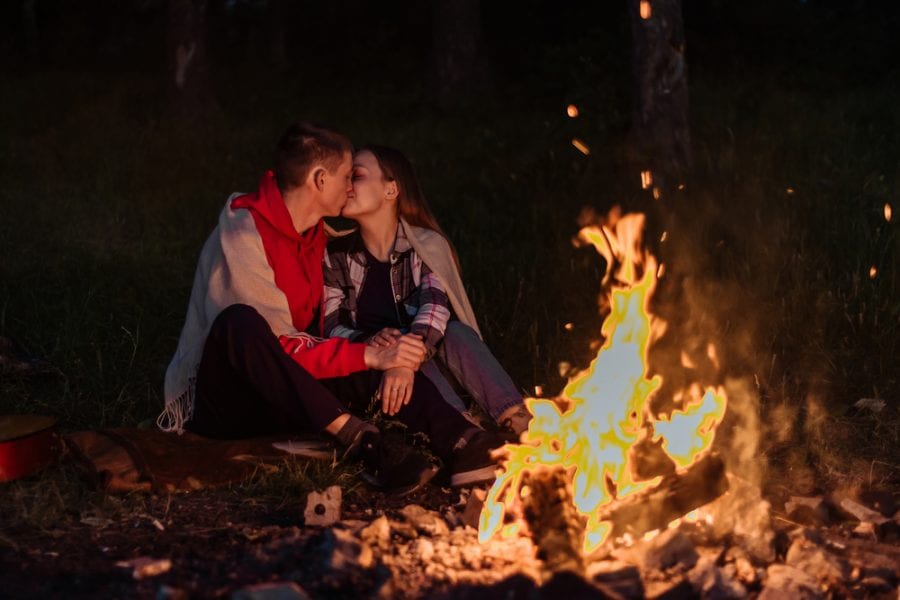
A campfire is a time-honored part of any camping trip and we hope that you get to enjoy at least a few of them on your first adventure. Despite this, we often find that newer campers rely too much on campfires for things like cooking and staying warm.
In reality, a campfire is more of a fun activity and less of a survival mechanism. Sure, you could stay warm by a fire overnight in an emergency, but you should still pack enough warm clothing for your trip, anyway.
At the same time, cooking over a fire isn’t always easy, so it’s important that you bring a camping stove for your travels. Of course, you can still roast s’mores over the fire, but the bulk of your cooking will likely get done in your camp kitchen on your stove.
Read More : 11 Tips to Have A Campfire Safely
9. Neglecting your hydration needs
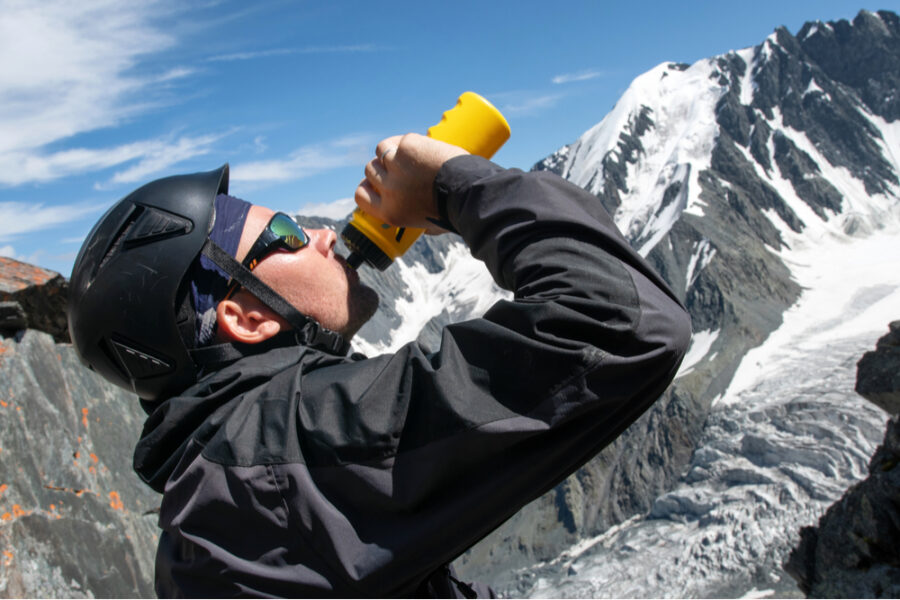
Hydration is an essential part of our day-to-day lives. When you’re out and about on a camping trip, however, it’s easy to overlook the importance of drinking enough water.
Since dehydration can be serious while hiking and camping, it’s vital that you come prepared with plenty of water bottles to help you stay hydrated during your trip.
It’s also worth periodically checking in on the rest of your camping group to ensure that everyone is drinking plenty of water throughout the day.
10. Improperly storing food and trash
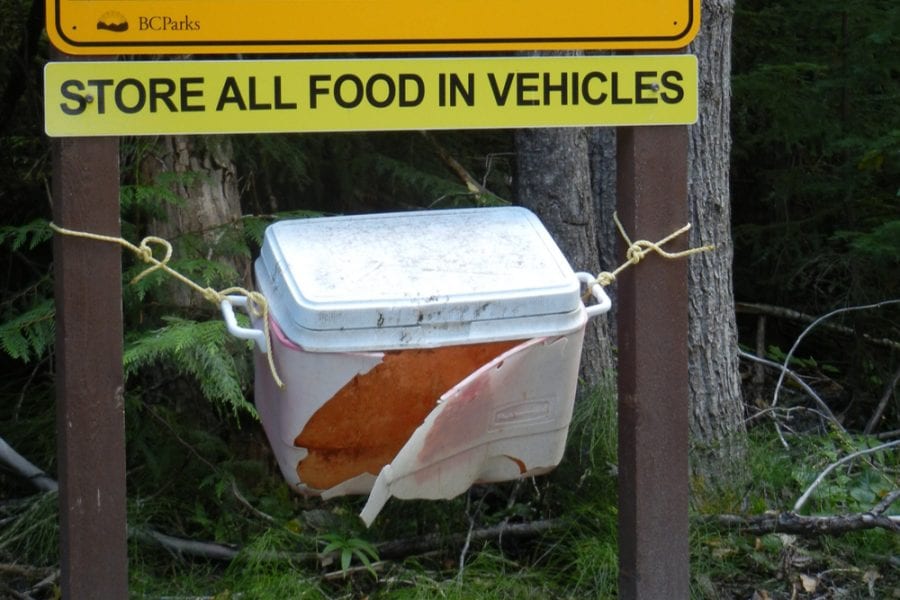
Proper food and trash storage are critical while camping.
That’s because improperly stored food can attract wildlife to your campsite, which can lead to all sorts of problems down the line.
In fact, many places, like Yellowstone and Yosemite, have strict regulations about how you need to store your food and trash. You’ll often need to place your food in a purpose-built bear canister, bear locker, or bear-proof cooler, so come prepared with a food storage plan before you leave home.
11. Using a smartphone flashlight for lighting
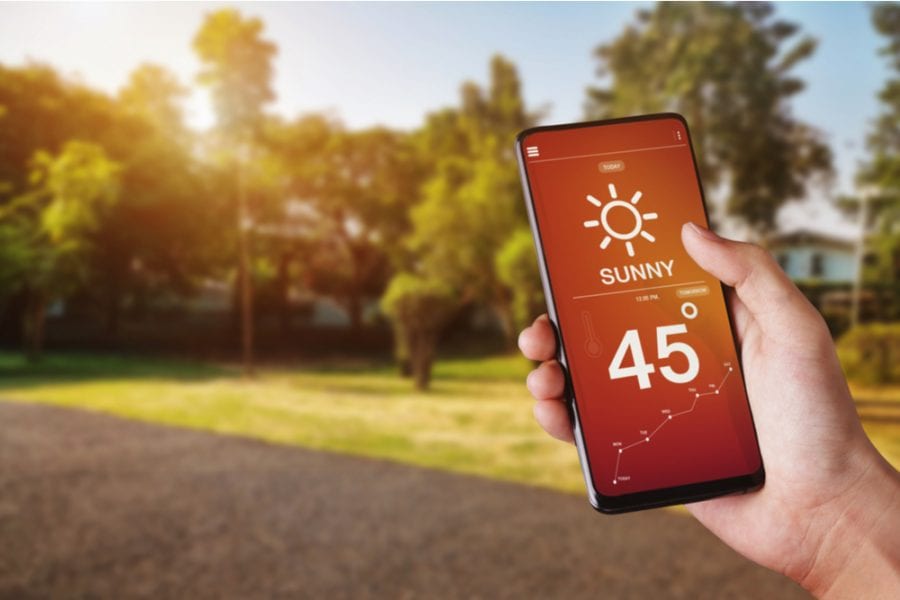
Without electricity to illuminate your night, you’ll need to have a solid lighting system in place for your camping trip.
For most of us flashlights, string lights, and lanterns are the perfect lighting options for camping adventures. However, there’s one piece of gear that you shouldn’t rely on for illumination at night – your smartphone.
While it might seem tempting to use your smartphone’s flashlight while camping, it’s not a good idea. The flashlight function on your phone will quickly drain your phone’s battery, leaving you without an emergency communication device.
So, stick to dedicated lighting tools, like a headlamp, instead.
12. Going too big too soon
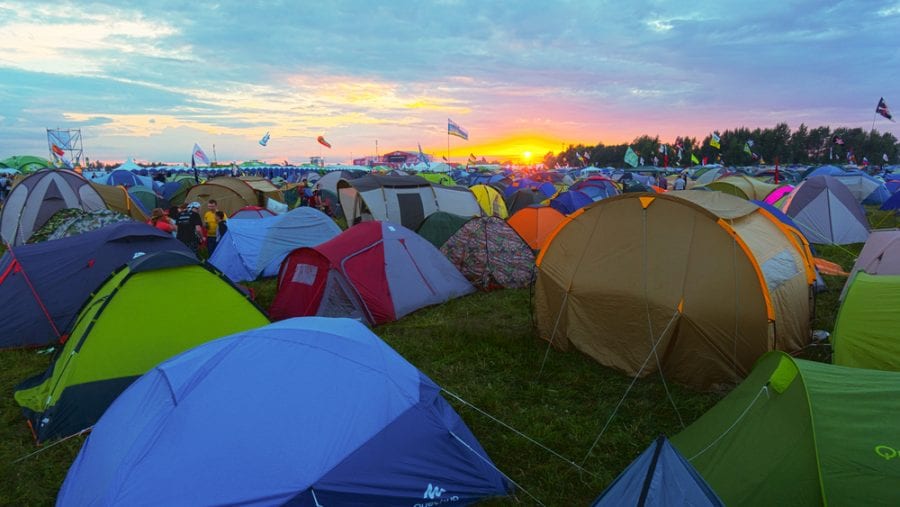
We understand the desire to make your first camping trip one to remember. However, trying to go too big with your adventures right off the bat is a surefire way to set yourself up for an epic during your first camping trip.
Ultimately, it’s best to start small with your camping career.
With time and practice, you’ll be able to take on bigger adventures, but there’s no shame in starting with a short overnight trip.
In fact, it’s the wise thing to do.
Gaby Pilson
Gaby is a professional mountain guide with a master’s degree in outdoor education. She works primarily in the polar regions as an expedition guide, though she can be found hiking, climbing, skiing, sailing, or paddling in some of the world’s most amazing places when not at work.

